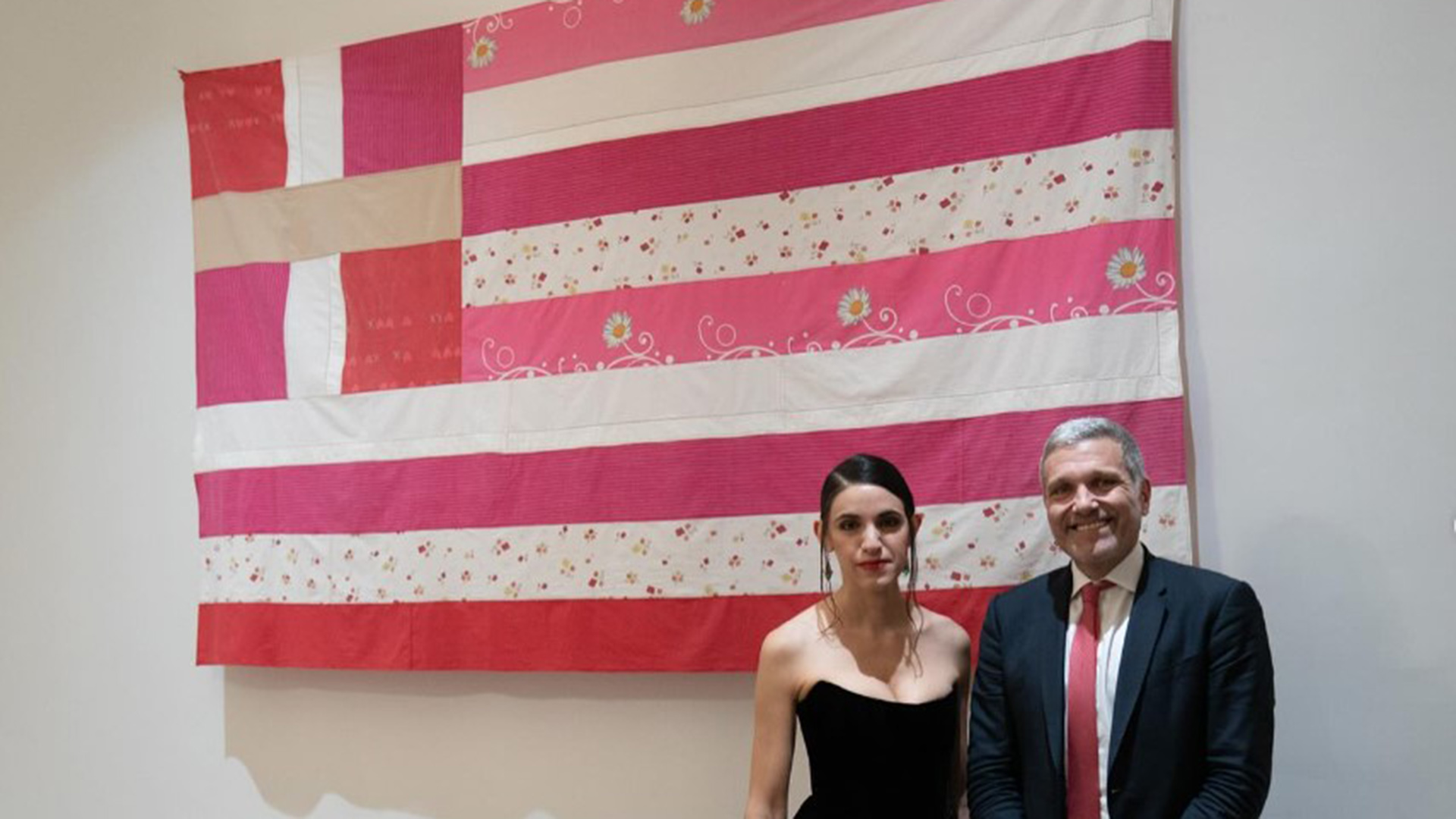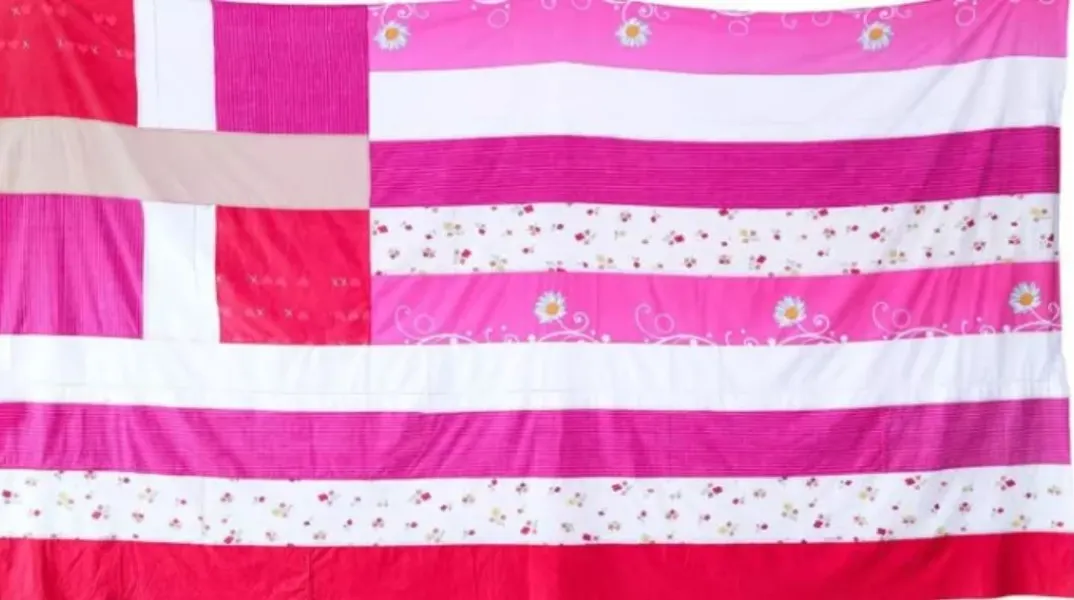By Amalia Theocharidou,
Great backlash has recently caused the newest work of the artist Georgia Lale, named “Neighborhood Guilt,” which was presented to the public in the Greek embassy in New York. The work showcases the Greek flag but in a different version than most of us have in mind. The artist, inspired by the many cases of femicide that have unfortunately been tormenting Greece, created the country’s flag, replacing the blue stripes and the cross with pink floral ones made from the sheets of Greek women. Georgia explained her coming-from on an Instagram post, writing that most of the women are killed in their own houses and beds. The controversy started with an article in a newspaper distributed to the Greek community of New York by Antonis Diamataris, who shamed the artist and stated that the flag is a symbol that shouldn’t be altered, especially in the building of the Consulate General. In addition, he critiqued the consul’s initiative to showcase art, underscoring that he distances even more from his original obligations, which are aided by homogeneity.
In Greece, the issue was broached in the Parliament by Dimitris Nachios, president of the political party “Victory”, who not only called the art piece a rug outraged that the artist had used pink but also proclaimed that the flag’s color had only changed once and that was from the blood of the Greek ancestors who fought for freedom. Furthermore, to mitigate the political crisis, the Greek Minister of Foreign Affairs, in a letter to the consul, demanded the removal of the flag. More and more politicians have started to make statements regarding this dispute. Mister Kasselakis, president of the political party SYRIZA, proclaimed that art shouldn’t be muzzled and that the incident leads us back to dark times of censorship. On the other side, the governmental representative highlighted once again the importance and holiness of a symbol like the flag, which shouldn’t be a matter of political dispute (Μάγρα, 2023).

Observing the whole fuzz over the issue, one thinks, should we be so overly concerned over a symbolic art piece? How much impact has this issue gained compared to the deaths of so many women in a year all alone? As all these politicians rush to give their opinion or post a quick text on social media, it can’t be helped but wonder: were they so fast to post their condolences for the victims’ families? Were they so fast to blame the criminals, to condemn their actions, and to pass legislation so femicide never happens again? Art isn’t the real problem here, but ignorance is. They talk about our country’s ideals, our “holy” past, and the sacredness that shall not be changed. How ideal is exactly all the disgust and terror a Greek woman feels when new information about another femicide is published? All these oh-almighty men of politics, and I repeat, men, talk about the demolition of tradition while what they’re demolishing is a lot bigger. Cutting the voice of a minority, because that’s what ‘modern’ Greek society has turned women into, is only enlarging the issue. Yes, preserve the traditional image of the killers. But on your existence, not on a million others.
Reference
- Μάγρα, Η. (2023). Η διαμάχη για το έργο με τη ροζ «σημαία», kathimerini.gr, available here




